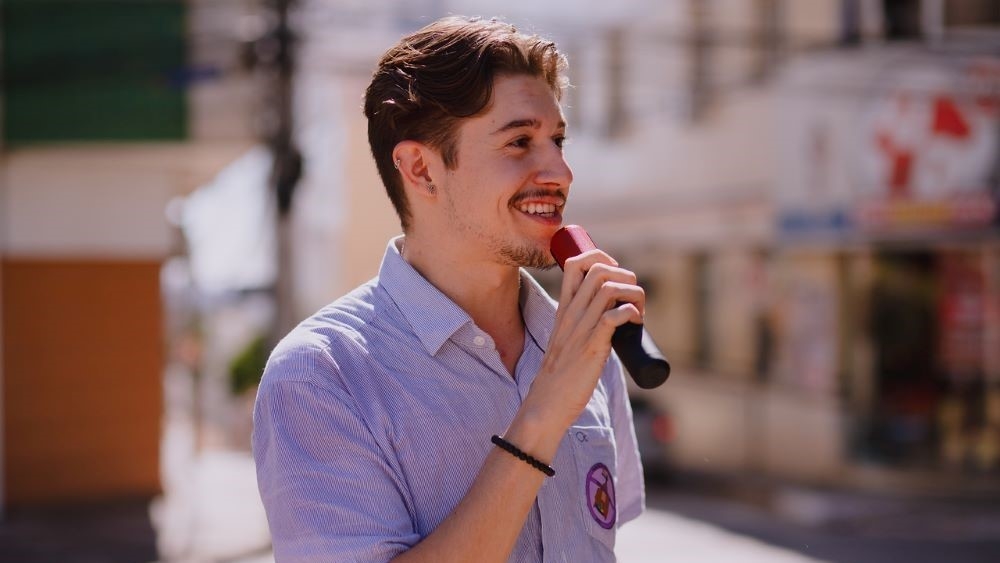What Came Out of "Pride Beyond Borders"
When I returned to Brazil in February [after graduating], I started participating in a few of the National Brazilian LGBTI+ Alliance’s advocacy efforts at Congress. They are an umbrella coalition of several NGOs and one of the leading voices in the country on the matter. I also introduced myself to the Advanced Center for Interdisciplinary Studies at the University of Brasília’s Gender, Inclusion, and Diversity Group, which I joined as a volunteer research associate.

At the latter, I leverage grant-writing skills I acquired through CCCE, for instance, to source funding for a planned Observatory on Violence Against LGBTQIA Persons in Brazil’s Federal District. Meanwhile, at the former, after being invited to and speaking at a Congressional session on the state of global queer civil rights, I have been named the organization’s Int’l Coordinator for Projects and Development.
Most impactful, however, was the inspiring work of fomenting and executing the first-ever Pride March at Bom Despacho, a rural conservative town in the countryside of Brazil, where I lived for the past two months alongside my grandmother. It was then I truly put those cross-cultural and conflict transformation skills to test. With a reputation of homophobic attacks and a contently hidden queer community, the town had never celebrated Pride in whatever capacity. I was an outsider–but I clearly saw the importance of breaking the silence and urgency to show a March was possible so that a local movement could build on it in years to come.
In only three weeks, alongside a diverse group of activists and community leaders, we impacted +100 people through diverse programming and the town’s first-ever Pride March. We held a documentary screening and debate at the local library, attended mostly by non-LGBTQIA-identifying people, and held hard conversations about the impacts of homophobia locally. We also organized a meetup at a karaoke bar to facilitate coalition-building and, of course, fun.
But it was the March on Sunday, for which we expected no more than 15 people, that demonstrated how powerful community organizing is to alter the landscapes we call reality. Earlier in the week, we received messages of concerned queer people who imagined the event to be a sham, a trap where they would have their identities revealed and even face public violence. It shocked me. Instead, over 70 people gathered at the plaza and marched through town in solidarity to the cause–some driving as far as five hours to be there. That day’s emotional speeches, merry-making, and local artists’ performances were sustained by a weeklong campaign of media appearances, crowdfunding, social media advertising, and advocacy with town authorities I co-orchestrated and, at the end, of which I felt extremely proud.
I risk saying I would not have felt as confidently empowered to see it all through were it not for the learning and maturity facilitated by the CCE.
-Arthur Martins, `24

